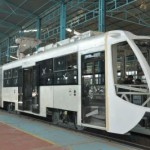 Machinery Falls Idle as Road Construction Slows
Machinery Falls Idle as Road Construction Slows
Two years ago, Solomon Zewdie, 32, left his job at one of the privately-owned construction companies where he used to work as an expert, convinced by a new opportunity he discovered.
If he worked as an operator of loaders, he could earn more than five times what he got at his previous job, he learned.
A monthly salary of 3,000 Br was sweetened with a per diem that was almost three times greater than his salary. At the end of the month, he could make up to 11,000 Br, heralding some of the happiest times he enjoyed with his wife and two kids.
This heyday period enjoyed by Solomon, and others like him, came following the launch of the enhanced Universal Rural Roads Access Programme (URRAP) in 2011 – a programme initially established with the aim of connecting all kebeles with main roads.
New graduates of engineering from universities were encouraged to organise themselves into groups of four and set up enterprises that would benefit from the 26 billion Br allocated for the programme, in order to create work for the legions of graduates flowing out of the expanding university system.
As a result, about 944 contractors and 271 consultation enterprises under the URRAP programme were created across the country. These allowed almost 417,000 individuals to be engaged in the sector. In the construction process, whereby the woredas take up to 70 pc of the work – most of which is covered by free labour – according to Ametahay Berhe, a contractor from Adwa, 1006 kms away from Addis Abeba.
This was seen as a windfall for those who rent construction machines, with machines such as dozers rented out for up to 2,400 Br an hour. The Diaspora community, artists and other prominent people became deeply engaged in the business.
“It became bread that we could eat without baking,” remembers a businessman who used to rent three excavators.
Kebele Id cards should not be given to Ethiopian diaspora who chang…
That, however, is no longer the case. The projects that created this windfall for engineers, operators such as Solomon and the businesspeople who rent the machineries, have stopped with the delay in release of the 2013/14 budget.
Solomon, for instance, was only paid his 3,000 Br salary from July to September. After the Ethiopian New Year, however, even his basic salary has been left unpaid. As a result, he now works as a broker, having left his previous job, and puts those who come to see the machines in touch with the owners.
“Whenever I put them in touch with the owners, I get a commission. That is how I lead my life,” he sullenly told Fortune.
Yet, even that is difficult.
“There is no one coming,” he said. “Even those who come do not need longer rental periods.”
Those who need the machines are those who are engaged in road projects that cover just a few kilometres inside the capital or in its immediate outskirts, according to Solomon. Previously, most business for machinery owners was concentrated in the Oromia region.
Following the 2012/13 fiscal year performance report, which revealed that the URRAP is not going as well as planned in the Growth & Transformation Plan (GTP), the contractors are discussing the challenges that have hindered the performance. In the meantime, the field works that used to benefit people like Solomon are not operational right now.
At the country level, a total of 71,523km of rural roads were expected to be built within the five years of the GTP period. But, so far, only 27,673kmhave been built – just 39pc of the plan. If the GTP target is to be met, almost 44,000km of rural roads must be built within only a year and a half.
In the case of Oromia regional state, although the programme targeted constructing 30,007km of rural roads, it has only reached 15,000km so far. The budget for this year is not yet released. As a result, the contractors and consultants sat down last week for discussions with Oromia state officials that will continue for 45 days, Fortune learnt.
“The discussion is quite serious given that projects are lagging behind nationwide,” a contractor in Oromia regional state told Fortune.
At the regional level, the only region that is succeeding in its accomplishments is the Dire-Dawa regional state. This was because the total amount of roads planned to be built during the GTP years was only 50km, which was easily achieved. In the case of the Somali and Afar regions, none of the planned roads have been built yet due to the relocation of people.
In addition to the lagging construction, the quality of the roads constructed by the small and medium scale enterprises seems to be doubtful, as the Authority itself stated in its 2012/13 fiscal year performance report.
The longstanding difficulty in recruiting and retaining experienced mid-level staff is a symptom of problems faced by the ERA that are deep-rooted, according to a study conducted in the sector by the World Bank.
Given that the woredas and regions take all the responsibility for supervising the progress of contractors, as agreed in their contracts, as well as the quality of their work, the ERA sometimes does not even obtain the real data from the regions, according to the study.
“We have not even fully received the quarterly reports,” said Alemayehu Bekele, an expert at the planning and management department at the Authority.
The issue of efficiency is an area of discussion among the contractors and consultants, who are young engineers, and the Authority. In the case of the URRAP contractors in Oromia regional state for instance, the issue is part of the evaluation in the meeting being held for consecutive days, according to the participants Fortune talked to.
In the meantime, construction machineries are sitting idle at the Akaki Kality District’s Woreda 05 Kebele 05, in front of the Ethiopian Revenues and Customs Authority (ERCA) Small Taxpayers Office. A number of the machines do not seem to have been moved since the rainy season, as the ground still shows the tyre patterns in the dried mud.
The prices of the machines for rent decreased alarmingly. Up to 2,400 Br an hour was the going rate for a dozer a year ago. The price has now decreased to 1,800 Br. The rent prices per hour of an excavator and a grader was up to 18,000Br and 1,200 Br, respectively. But now an excavator is rented at 650 Br an hour and a grader for 1,000Br. The same thing applies to loaders, whose hourly rental rates decreased from 600 Br to 400 Br.
Even with these prices, there is no one who comes to rent it, claims Wondwosen Ketema, an excavator owner whose machine has been left idle for the last five months. As a result, he wishes to sell it back.
“But who can buy it with a reasonable price?” He asks.
The excess number of machines has also made the possibility of Getahun selling his idle machines improbable. The Metals & Engineering Corporation (MetEC) alone is due to assemble and supply 10,204 machines to the enterprises. So far 8,300 machines have been distributed.
The Authority is also building assembling centres in four different regions – Tigray is set to get three centres, while Oromia, Amhara and the Southern regional state are each to get two.
This does in no way include the huge number of machines that are owned by individual investors.
“Perhaps two or so years ago, buying a construction machine was a fashion and, of course, a good means of income,” Wondwosen recalled.
Now, the fashion is out of season, with even those already in it trying to find a way out.
“I had a dream to buy a machine and to work with it myself,” said Solomon, the now broker. “Now, forget about buying. I wish I had never entered this business.”
BY BEWKET ABEBE
FORTUNE STAFF WRITER














![Saudi investors leave Ethiopia [al-monitor.com]](https://www.ethiopianopinion.com/wp-content/uploads/2013/12/77-150x150.jpg)













Join Conversations